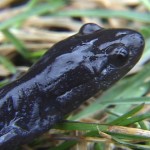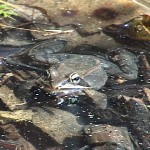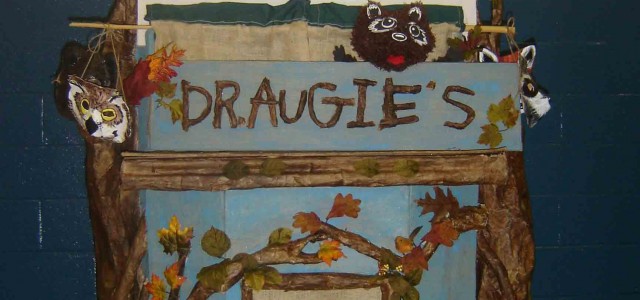BEAT Announces Vernal Pool Workshops
Spring is near, and its time for fairy shrimp and for wood frog and salamander migrations. Many of our amphibians and invertebrates depend on small, often temporary pools called vernal pools. Some aren’t much bigger than large puddles – others are the size of ponds. Typically, they fill in spring from snow melt and spring rains, and may dry up just a few months later. In wet years they may remain full of water all year. In dry years they may not hold water long enough for their resident amphibians to breed. These fragile and often over-looked habitats need protection as they support some species of invertebrates and amphibians that are found only in vernal pools. In Massachusetts, the Natural Heritage and Endangered Species Program administers a program by which vernal pools can be located and certified, thereby providing some additional protection to the pools.
BEAT will be conducting two workshops instructing volunteers in the vernal pool certification process. Almost all certification of vernal pools is done by volunteers. The first workshop will be held on April 16 from 2:00 to 4:30, and will then be repeated on April 22 from 2:00 to 4:30. Each workshop will start indoors at the Hoffman Environmental Center, Room R101 at Berkshire Community College. After classroom instruction, the group will carpool to a pair of vernal pools for further instruction. Both workshops are free and open to the public. If you are interested in attending either of these workshops, send us an email.
Whether you’re interested in certifying vernal pools or not, BEAT would like some help in documenting the spring amphibian migration. Each spring, spotted salamanders, Jefferson salamanders, and wood frogs come out of their hibernation and migrate from their upland wintering homes to their vernal-pool breeding grounds. This migration occurs in unison, usually on a rainy evening at the end of March or the beginning of April. We think the time is right. Soon, on a rainy evening, the amphibians will migrate, often crossing roads in the process. If
you witness one of these migrations, the Massachusetts Department of Transportation would love to have you report the event on their Linking Landscapes website. The site will allow you to enter the species of amphibian that were migrating and their approximate numbers, and the date and location. You can also record the weather, including temperature, and the location of the vernal pool to which the amphibians were migrating.
If you’ve already been through our workshops and are interested in working with us this season on certifying more vernal pools, send us an email. Certifying vernal pools helps protect habitat and is a great excuse for getting outdoors.






